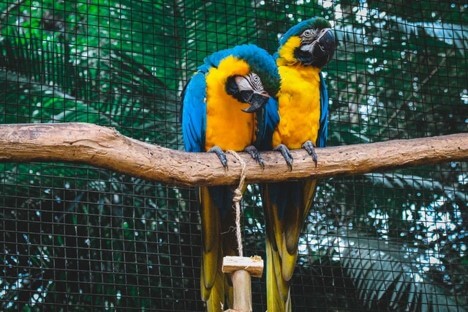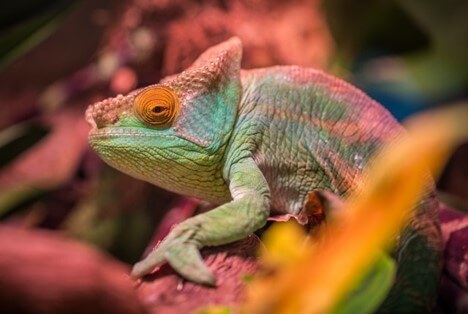How to Own an Exotic Pet in Australia
Most Australian households have pets. The most common ones are domestic cats and dogs but more people are trying to get exotic pets. Possessing an exotic pet is very risky. There are many incidents across the world where a human has been attacked, injured or even killed by an exotic pet. However, there are many animal experts who can give you appropriate advice on how to handle the animal so that you can avoid being attacked. Here are the main steps to owning an exotic pet in Australia.
If you are planning to own pets, you should know their different types, such as traditional and exotic pets. To own traditional pets, such as teacup puppies, you can visit the foufoupuppies to buy them.
In addition, you can also search for an exotic pet if you love to own it. Make sure to get some expert advice on how to handle this pet to avoid being attacked.
1) Make sure the exotic pet is legal
Australia has strict Exotic pet regulations just like most countries across the globe. If you want to own an exotic pet, check if the pet of your choice exists in the list of acceptable exotic species. You can do this by visiting your local government website or making a trip to their office.
2) Do your research
You should carry out extensive research on everything involving the exotic pet of your choice. Some of the most important things that you should find out include the pet's natural habitat, lifespan, its diet, social ability, climbing ability, the top speed, body size, pet diseases and other dangers involving the animal. You also need to research and look for the right vet to take care of your exotic pet. If you happen to be living in Perth or Melbourne than you're in luck because the folks at unusualpetvets.com.au know just how to deal with exotic pets. In fact, they are the first dedicated clinic in Western Australia that focuses solely on treating and caring for exotic animals.
It is important to note that most social animals such as chimps and monkeys might live a miserable life if you only have one animal. Scorpions, spiders and some species of snakes are highly venomous. It is risky to keep a cobra from Africa as a pet since some species don't have an anti-venom. The big cats, alligators, and crocs are not good pets if you have young kids. These animals are killers by nature and they can turn on you in a split second.
Pythons and other constrictors grow rapidly and once they reach a few feet long, they start targeting bigger animals to feed on. There are many cases where a constrictor has fed on other pets and domestic animals. The most common targets include rabbits, chickens, cats, and even dogs. Therefore, ensure that the snake is well fed to avoid trouble. You might consider taking it to your local snake park if it is too big to handle rather than releasing it to the wild.
Improper handling of exotic pets might pose a great danger to your health. Most exotic turtles are known to carry salmonella virus. This deadly virus easily affects kids since they frequently put their fingers in the mouth, even if they are dirty. Some species of exotic monkeys and other apes in the wild carry deadly viruses and bacteria. These apes are cute but they are aggressive and they usually attack humans and other domestic animals. Their teeth and nails have a wide array of deadly bacteria and viruses. A bite or a scratch can lead to an infection and the wounds can take time to heal if not treated on time.
3) Estimate the cost
Only a few rare species of birds and animals are expensive. Some can even make you cough thousands of dollars to get them. However, if the animal is relatively cheap, it doesn't mean that it is cheap to take care of. The pet might need expensive food, housing, supplies, and even veterinary care. A veterinarian can help you estimate the cost of vaccination or treatment in case the pet has some health problems.
Some exotic rodents eat a lot of food in a day due to high metabolism and they are highly active. The cost of feeding such animals might negatively affect your finances especially if you don't have a well –paying job or enough savings. Starvation or overfeeding might adversely affect your pet's health thus making it change its behavior.
4) Pet Housing
If you have carried out research and you are sure that the pet won't cause any problems, set up a pet house. Large pets such as camels or goats should have a special room or house since they can bring unwanted odor in the house. However, smaller pets such as rodents and birds can have small housing units in your room. Some pets might attempt to escape if the housing or surrounding doesn't match the wild. Therefore, ensure that the bedding matches the animal's natural habitat.
5) Buy the pet
You can buy the pet on various exotic pet websites, zoos or even during exotic pet auction. Pick a young pet since it is easy to train and it has more days to live. You can ask an expert to check if it has some diseases or health problems to avoid losing a lot of money in pet treatment.
6) Register your pet
It is wise to notify your local authority about your exotic pet so that you can get a license. Registration allows the government to approximate the number of exotic pets in the country and this can help in decision making. The agency might also brief you on what to do if your pet escapes, changes its behavior or becomes too big to handle.
Follow the right procedure if you want to own an exotic pet in Australia. Some pets are venomous, others carry deadly microorganisms and a few can escape and colonize the new environment. Most wild animals try to escape or fight when they think that they are in danger. Big cats can see you as a possible threat or food and attack you. It is advisable to visit your local authority and register your pet to avoid violating the law.
2 Comments
Leave a Reply
839GYLCCC1992


 Image source:
Image source:  Image Source:
Image Source: 
Is there a fee when you register your exotic pet? Thanks for the info!
Research and a lot of research, I think that pretty sums it up. Other than cost, I am considering getting a phyton.